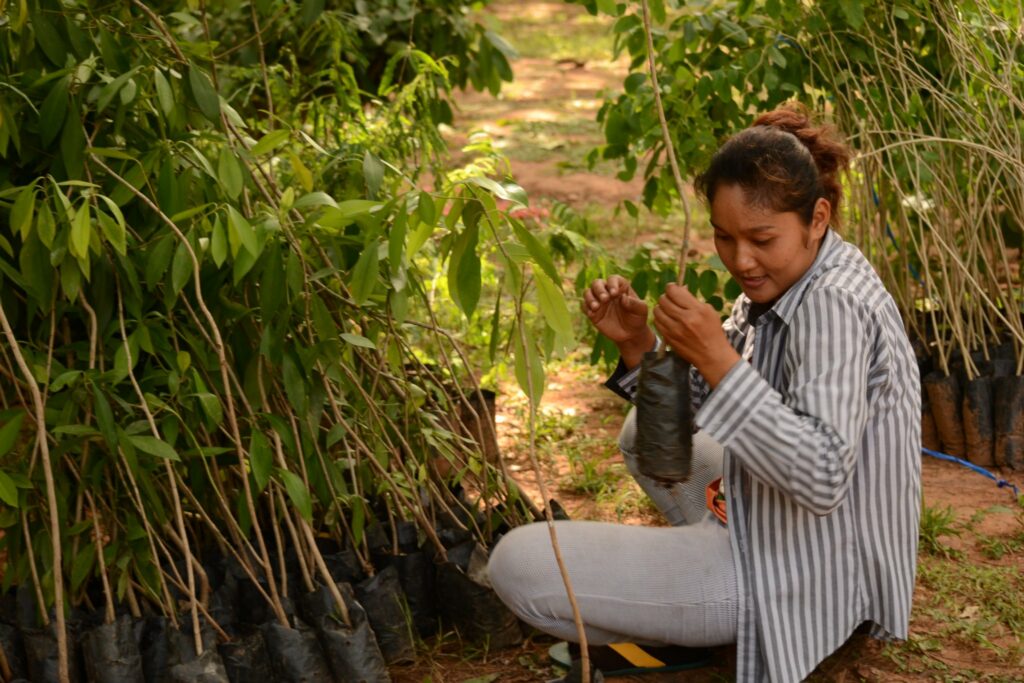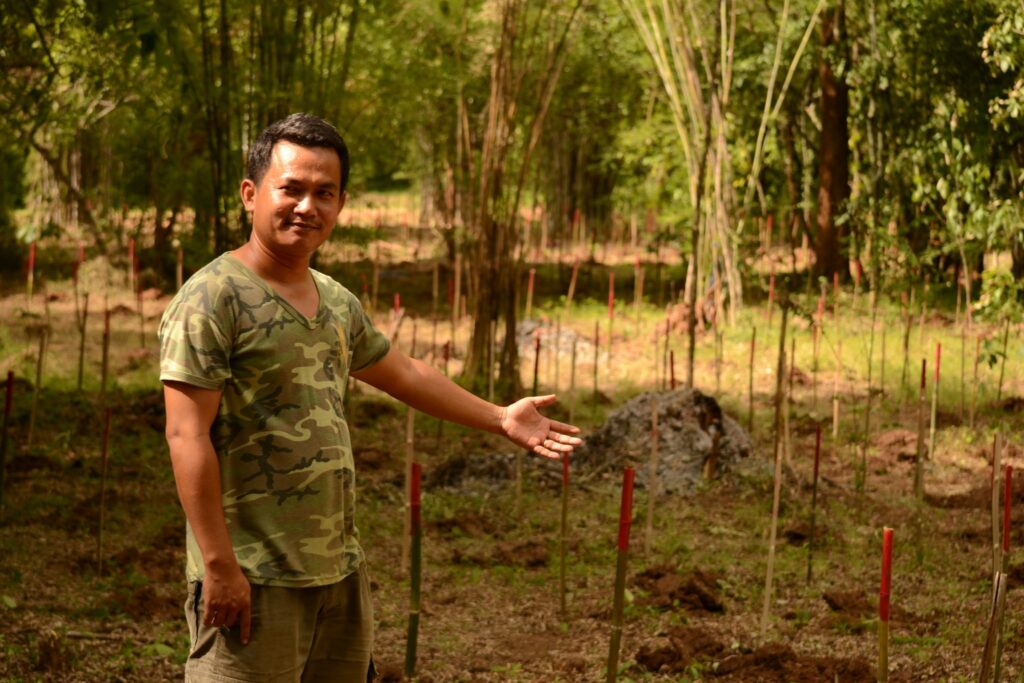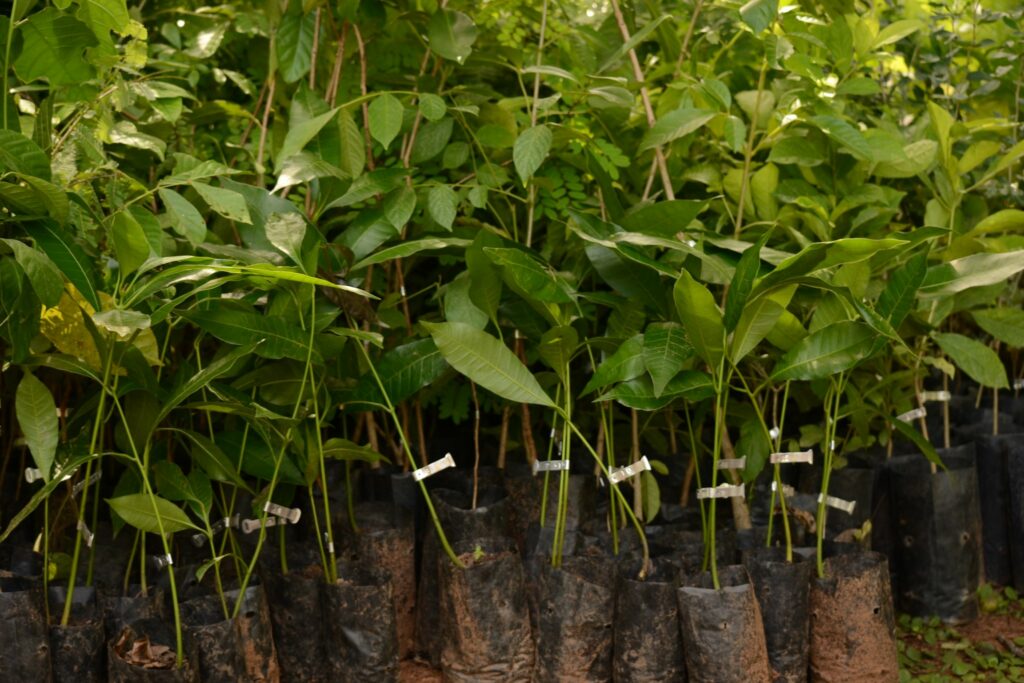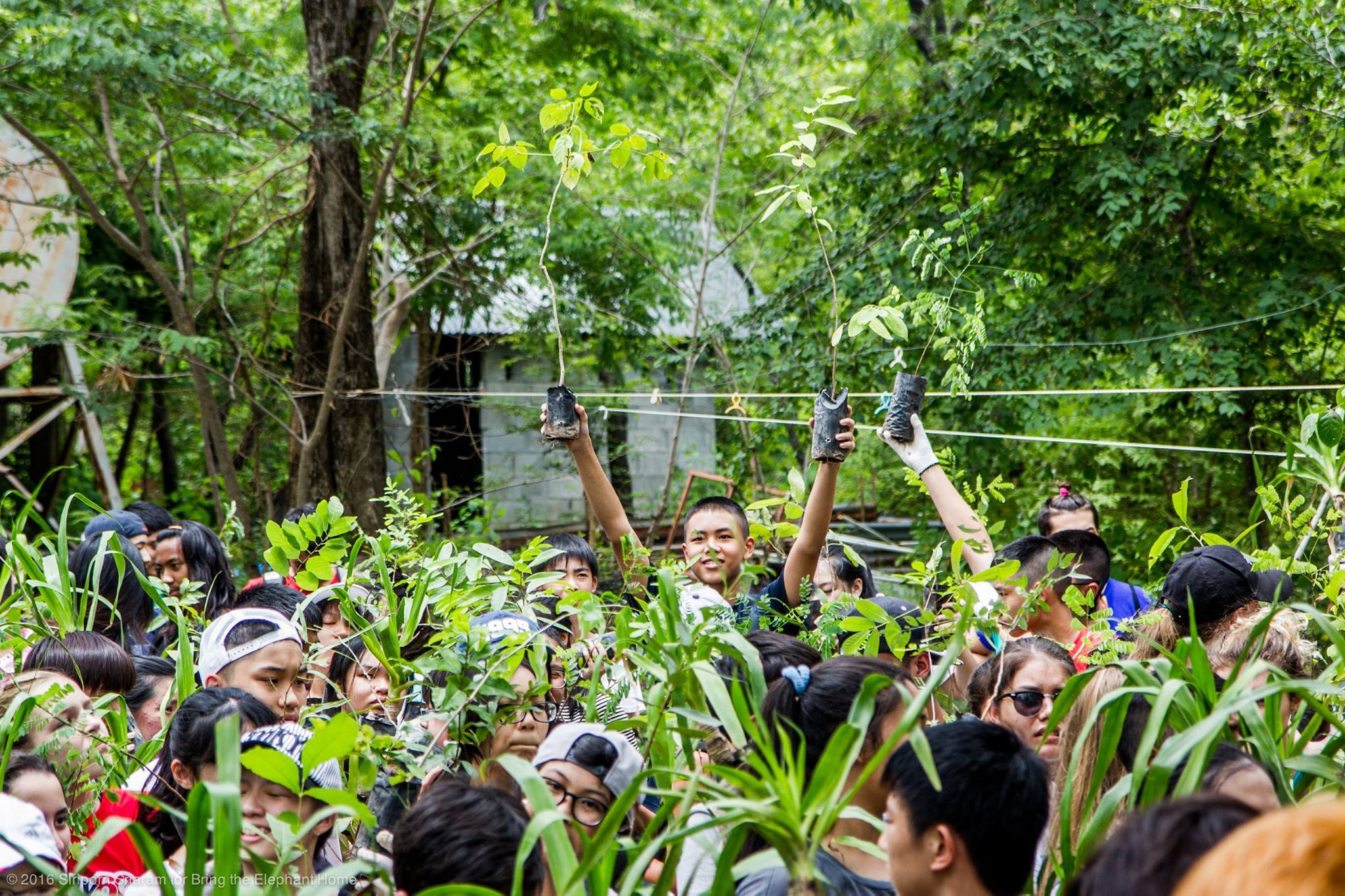In and around wild elephant habitat, we collaborate with local communities, NGOs, government, rangers and other stakeholders on improving the forests, cultivating green corridors, and creating and sustaining a more suitable habitat. A more suitable habitat for elephants makes elephants want to stay in the protected areas, and will diminish the human-elephant conflict. The educational programs connected to this are essential to secure the future of elephants and their habitat.
We work closely with local communities, so the villages get the resources they need to live in harmony with the wild elephants. Instead of the inconvenience the elephants caused in the past, they will now be a benefit. Among the projects our teams have conducted, you can find the following:
- Since 2007 and with the help of many funders and thousands of volunteers, we have planted over 700,000 trees for elephants. Near Salakpra, for instance, we could convert a sugar cane plantation back into a natural forest in July 2015. The plantation is located at the border of the protected area and is often destroyed by wild elephants. The abbot of a local temple convinced the owners to give the land back to nature and to create a buffer zone for wildlife. We hope that this initiative will be followed by more landowners so plantations along the border of Salakpra Wildlife Sanctuary can be converted back to their natural state.
- Villagers collect seeds of native trees and grow seedlings at the community-based tree nursery. Additional income can be generated through the sales of seedlings for forest restoration events, the coordination of such events and maintaining tree planting sites;
- Villagers host conservation volunteers in homestay accommodation, where visitors can emerge themselves in Thai culture, while the community benefits. They can develop and sell local products, offer Thai massage or cooking classes, which gains much interest from visiting groups;
- Together with community members and many volunteers, we have built dozens of check dams to improve the watershed conditions inside the forest. Drought is a serious problem in Kanchanaburi, as drinking water tends to be lacking for animals. In the dry season, wild elephants intrude in human territory in search of water, resulting in increased human-elephant conflicts.



We worked with different volunteer groups to improve the habitat of the wild elephants of Salakpra Wildlife Sanctuary.
Through hosting these events, we connect ecotourism to community-based conservation initiatives. This bottom-up and holistic approach allows mitigating human-elephant conflicts effectively, while empowering local communities in being actors of beneficial change. Activities organized by locals are diverse and range from reforestation to water or mineral supply provision, to educational activities, and to support volunteer rangers working to prevent human-elephant conflict. Thousands of people are inspired to protect elephants and nature and participate in our work.
If you would like us to host a community-based conservation event for your group (school, company, sport club, etc), please email us at info@bring-the-elephant-home.nl.
Watch the video below to learn more about our wild elephant conservation projects in Thailand:
Support us now to restore elephant habitat! For 50 euro, we will plant 35 trees for elephants inside Kuiburi National Park during the rainy season of 2022!
News and updates
2022-08-12 Trees for Elephants plants 1,200 trees
